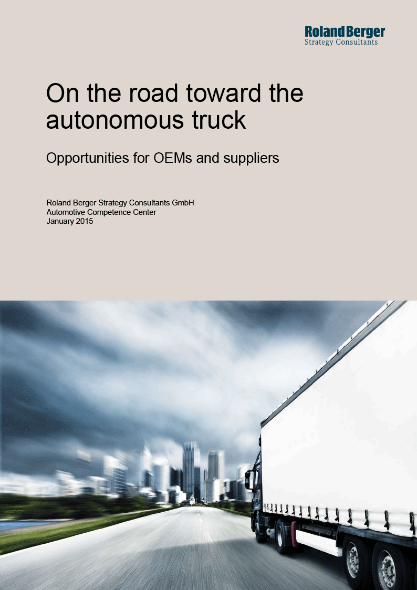Autonomous Trucks
![{[downloads[language].preview]}](https://www.rolandberger.com/publications/publication_image/cover_autonomoustruck_download_preview.png)
Automated driving is a hot consumer topic, but it also offers considerable commercial applications to reduce road accidents.


Automated driving is a hot consumer topic, but it also offers considerable commercial applications to reduce road accidents. Systems like adaptive cruise control (ACC) have been estimated to be able to reduce truck-related rear-end collisions, currently still the most common type of truck-related accident, by over 70%. As an important form of commercial transportation, the trucking industry needs to respond to safety—and environmental—concerns by becoming more efficient, green, connected, and safe.


Our recent study into the future of automation and the trucking industry focuses on the drivers of self-driving technology and sketches the way forward from a technology and a legal perspective. It also discusses the implications. For OEMs, the main task is to prepare technologically for self-driving trucks by further developing ADAS operating understanding on the vehicle and system level in-house. For suppliers, the focus must encompass both technology (sensor and software development) and effective business models for providing both complete systems and ADAS components only. With fewer traffic-related deaths and lower transportation costs, the benefits of ADAS-enabled (limited) self-driving trucks are compelling—and no longer so far away.

![{[downloads[language].preview]}](https://www.rolandberger.com/publications/publication_image/cover_autonomoustruck_download_preview.png)
Automated driving is a hot consumer topic, but it also offers considerable commercial applications to reduce road accidents.